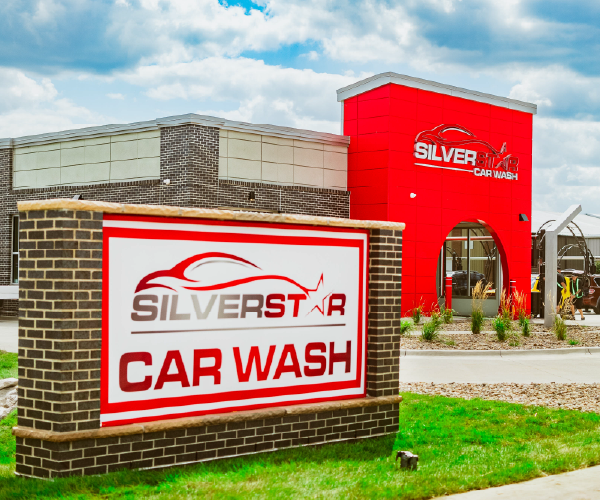
Firm Foundations
January 1, 2013
5 minute ReadSmall and medium-sized business owners are under pressure now more than ever. An uncertain economy has resulted in owners putting more time into their businesses with less room for growth. A 2 percent increase in employee payroll tax combined with potential cost increases in healthcare has resulted in a decline in small business confidence.
According to a National Federation of Independent Business index score, small business confidence in December of 2012 was at its second-lowest point since March of 2010. The reasons for low optimism, cited by the NFIB study, include taxes, regulations and the fear or poor sales.
With those statistics in mind, choosing the right structure for a small business should not be taken lightly. There are several factors to consider, including liability, tax advantages and shareholder advantages. Here we’ll discuss three common business structures: sole-proprietorship, S-corporation and Limited Liability Company.
SOLE-PROPRIETORSHIP
Joel E Jacobson, a tax professional based in Pompano Beach, Fla., is a former IRS agent with more than 30 years of accounting experience. His company, Creative Accounting and Tax Services, represents several small and medium-sized businesses throughout the country.
“My reasons for recommending one (small business structure) over another depends on the state that you are in, your own personal desires, what you think, what you like and what you are looking for,” Jacobson said.
He would not recommend a sole-proprietorship because of the double-taxation implications. A sole-proprietorship that generates a profit pays both income tax and self-employment tax. “You are doing it for two parties because you are in a sense the employer and the employee,” Jacobson said. “Plus there’s no liability protection.”
As president of Athlete & Event Sports Public Relations, Chip Namias has owned a sole-proprietorship since 1998. His company specializes in media/public relations, publications, broadcasting, community affairs, media training and event planning. It has run public relations campaigns for several sports-related movies, including Glory Road and Semi Pro.
Namias enjoys the freedom of being his own boss and not having to account for employees. But with his company based in Santa Monica, Calif., Namias does not enjoy when tax time rolls around each April.
“Unfortunately, I’m in a state with one of the highest income taxes in the country,” Namias said.
S-CORPORATION
S-corporations are becoming increasingly popular because of the tax advantages they provide. An S-corp is called a “pass through” because partners or shareholders pay tax and report their share of the profit and the losses in their proportion of ownership. Jacobson recommends S-corps in Florida, one of seven states that don’t collect income tax.
“When you pass through the income it goes on your federal tax return and that’s where it ends,” Jacobson said. “There’s no state income tax return to report as in other states. You don’t make a corporation.
“There are restrictions on who can be an S-corp and who can be a shareholder. You can’t be a non-resident alien and be a shareholder in an S-corp. You can only have 100 shareholders. So if you are thinking of taking a corporation public eventually, you don’t want to make it an S-corp.”
Bill Walker, owner of Bill’s Car Wash in Orlando, Fla., is pleased with the tax advantages that an S-corp provides. Walker owns three car washes in the greater Orlando area and is due to open a fourth location this year.
“I’m really happy with it,” Walker said. “I don’t see any disadvantages to being an S-corp. Here in Florida, we don’t have state income tax, so all I have to worry about is what’s passed through to me. Now I pay a substantial amount of taxes on this company and it stands to go up over seven, eight percent this year. It’s going to be tough to swallow, but it is what it is and we’re just going to have to forge ahead the best that we can.”
LIMITED LIABILITY COMPANY
A Limited Liability Company (LLC) offers more legal protection. Owners of the LLC, called “members,” are protected from some or all liability for acts and debts of the LLC depending on state shield laws.
“If someone sues you, the worst that can happen is you lose your business, not your personal assets,” Jacobson said.
Jacobson said he wouldn’t recommend an LLC for a car wash because most car owners carry their own insurance that can cover damages. An LLC would be more suited for a business like a gun range or a restaurant, where liability is much greater.
Walker said he contemplated changing his business structure from an S-corp to an LLC. Like an S-corp, an LLC is a pass through with taxes passed through the owner. But states such as Alabama, California, Kentucky, New York, Pennsylvania and Tennessee levy a franchise or capital value tax on LLCs.
“At some point we had a discussion about an LLC but it wasn’t the right structure,” Walker said. “An S-corp works for us.”
HEALTHCARE CONCERNS
Another issue facing small business owners going forward is the Affordable Health Care Act. The bill, which goes into effect on Jan. 1, 2014, is designed to provide healthcare for all U.S. citizens. But to accomplish that goal, small businesses will pay a $2,000 penalty for each full-time employee over a 30-employee threshold that is not provided health insurance. There are no penalties if part-time employees aren’t offered coverage.
“We have over 100 employees, of those probably 20 percent, maybe 25 are full time,” Walker said. “So we’re currently exploring all of our options, and like a lot of businessmen we’re trying to figure it out.
“One viable option a lot of people are talking about is making everyone part time and have a 36-hour maximum for all employees in order to possibly avoid the Affordable Health Care Act. We’re in the process of getting all of the facts, but I’ve heard more than one businessman say that part-time employees may be an answer.”
For a company that reaches 50 full-time equivalent employees, a penalty will kick in for failing to provide coverage for employees who average 30 or more hours a week in a given month. While the penalties appear tough for small business owners, Jacobson pointed out that employers will receive tax credits up to 35 percent for premiums paid on health coverage, which will increase to 50 percent in two years after 2013.
“You have to really know the makeup of your business,” Jacobson said. “For permanent employees you are going to have to pay for it, but for a small business, you are going to get a credit if you do it properly.
“Self-employed coverage, there will be an excise tax on employer-sponsored health coverage if a deduction is allowable. It’s complicated and I would say anyone should consult their tax professionals. But I would urge people not to push the panic button. I think they are going to find out that a lot of their fears are not well-founded.”







